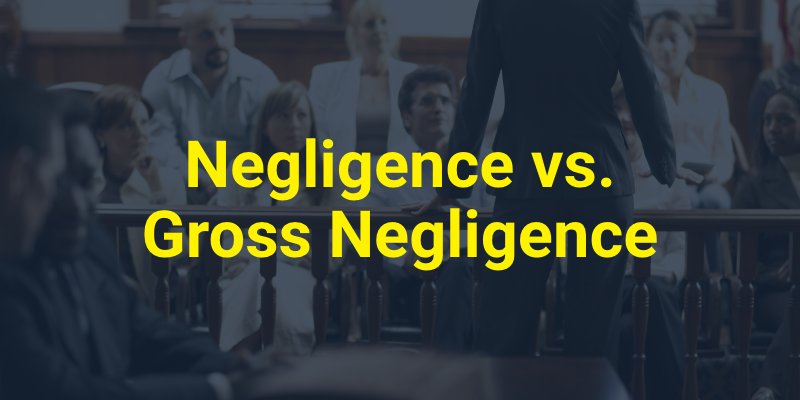Understanding the distinction between negligence and gross negligence is vital in Mesa personal injury cases, as it can impact the nature of the claim and the potential for compensation.

In personal injury law, negligence is a foundational concept. At its core, negligence involves a failure to exercise the care that a reasonably prudent person would exercise in similar circumstances. This can range from a distracted driver causing a car accident to a property owner failing to address a hazardous condition, leading to a slip and fall. The key aspect of negligence is the absence of intent to cause harm, but harm is caused anyway.
Gross negligence, on the other hand, escalates beyond simple carelessness or failure to exercise proper caution. It’s marked by a conscious and voluntary disregard for the need to use reasonable care, which is likely to cause foreseeable grave injury or harm to persons, property, or both. Gross negligence is seen as a severe form of negligence that indicates a blatant indifference to the safety and well-being of others.
In many jurisdictions, the distinction between negligence and gross negligence can significantly impact the outcomes of personal injury claims, especially concerning punitive damages or the grounds for a claim itself. However, in Arizona, its impact is a little less obvious. Here’s what you should know about gross negligence in Arizona:
Not a Separate Cause of Action: Unlike some states, Arizona does not recognize gross negligence as a separate cause of action. This means that a claim based on gross negligence is essentially treated the same as one based on standard negligence.
Not the Standard for Punitive Damages: For punitive damages to be awarded in Arizona, there must be evidence that the defendant “acted with an evil mind.” The state does not extend punitive damages solely on the basis of gross negligence.
The Role of Gross Negligence in Arizona Law: While seemingly absent from much of Arizona personal injury law, gross negligence finds its place in matters of qualified immunity.
Specifically, Arizona law provides immunity to certain individuals and entities, from personal injury liability under specific circumstances unless their conduct was grossly negligent or intentionally harmful. This often applies to government employees, entities, and in certain medical malpractice actions.
A health professional…who provides medical, optometric or dental treatment, care or screening within the scope of the health professional’s certificate or license at a nonprofit clinic where neither the professional nor the nonprofit clinic receives compensation for any treatment, care or screening provided at the nonprofit clinic is not liable in a medical malpractice action, unless the health professional was grossly negligent. For the purposes of this subsection, “nonprofit clinic” includes a clinic, an office, a homeless or other shelter, a health or screening fair or any other setting where treatment, care or screening is provided at no cost to the patient.
This requirement for gross negligence significantly alters the approach a plaintiff must take in these cases, making it much harder to successfully recover damages.
While the concept of gross negligence plays a minimal role in the general framework of Arizona personal injury law, its significance is pronounced within specific legal provisions, particularly concerning qualified immunity and specific instances of medical malpractice. Understanding these distinctions can be crucial for individuals navigating the complexities of personal injury claims such as Mesa Arizona car accident claims.
If you need help, contact us today to schedule a free consultation.